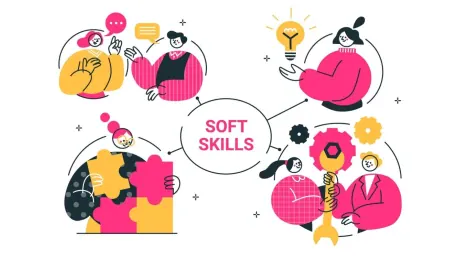Artificial intelligence (AI) has become a dominant force in reshaping the workforce. As this technological shift gains ground, understanding its effects on employment is crucial. At the heart of this transformation lies the need to evaluate which jobs value human skills and why these positions remain relatively secure. This roundup article provides insights into how AI impacts various high-skill roles, drawing on opinions from industry leaders and experts.
The New Frontier: Understanding AI’s Rise in the Workplace
AI’s integration in the workplace has created a new frontier. The intersection of AI and employment can be traced back to early automation and machine learning advancements. Now, AI-driven job evolution is a critical topic as its presence is increasingly pervasive in various sectors.
Roles such as Chief Executives, architects, and HR managers are adapting and thriving in this AI era. These positions maintain their importance due to their reliance on creativity, strategic thinking, and interpersonal skills—attributes where machines lag behind human proficiency.
Leadership in the Age of Machines: The Enduring Role of Chief Executives
Chief Executives, with their strategic vision and leadership, face a mere 14% automation risk, demonstrating the enduring importance of human oversight. Despite the rise of AI, industry data suggests that executives’ roles are safer due to their complexity and need for strategic decision-making.
Comparatively analyzing human strategic thinking and machine logic highlights that while AI can process data efficiently, it cannot replicate the nuanced strategic foresight of a human leader. Some top CEOs leverage AI to enhance their decision-making processes without losing the human edge that defines their leadership.
The Architect’s Realm: Where Creativity Meets Precision
Architects are well-positioned in the AI era, facing just an 18% automation risk. The combination of technical skills and creative vision makes their role less susceptible to AI disruption. Growth trends indicate strong demand for architectural expertise that successfully integrates AI-assisted innovations.
Real-world cases show that architectural firms use AI to enhance design accuracy and streamline construction processes. However, the balance of artistic vision and AI technology continues to underscore the crucial role of human creativity in modern architecture.
Navigating Complexity: Event Planning and Crisis Management
Event planning and crisis management roles necessitate human skills, especially in high-stakes coordination. These positions are relatively secure, with professionals debating automation’s impact on event management.
While some argue that AI can optimize logistics, the human touch remains indispensable for managing unexpected crises and personalized client experiences. Future outlooks project an evolving toolkit for event planners, blending traditional skills with AI-driven efficiency.
Human Resources Reimagined: The Unlikely Synergy of HR and AI
Human resources roles exhibit low automation risks, supported by detailed job growth statistics. HR leaders increasingly integrate AI into people management, enhancing recruitment accuracy and employee engagement.
Emerging trends highlight AI-driven tools that improve workplace satisfaction and streamline HR processes. Nonetheless, the interpersonal aspect of HR remains fundamental, ensuring these roles continue to thrive.
Insight-Driven Professions: Analyzing Marketing and Sales Management
Marketing and sales management positions experience partial automation, yet remain secure due to their reliance on human creativity and insight. Key data shows that while automation assists in analytics, human judgment and innovative strategies are irreplaceable.
Successful case studies demonstrate how marketing and sales teams leverage AI for enhanced targeting and customer relationship management without compromising on creativity. Opportunities and risks in these fields revolve around balancing AI analytics with human-driven ideas.
Future-Proofing Careers: Strategic Takeaways and Recommendations
For career resilience in an AI-driven market, essential skills such as strategic thinking, creativity, and interpersonal abilities must be developed. Industry best practices suggest leveraging AI as a complementary tool while maintaining human value in decision-making.
Implementing actionable steps for career growth involves continuous learning and adapting to technological advancements. Professionals should focus on areas where human intuition and creativity are paramount.
Concluding Thoughts: The Ever-Evolving Landscape of Work
AI’s long-term impact on human-centric professions underscores the continued relevance of roles requiring leadership, creativity, and interpersonal skills. The trajectory suggests that, while jobs evolve, human ingenuity remains indispensable.
Reflecting on these insights, it becomes evident that embracing technological change while advocating for human-centric skills will be key in navigating the future workforce landscape.









